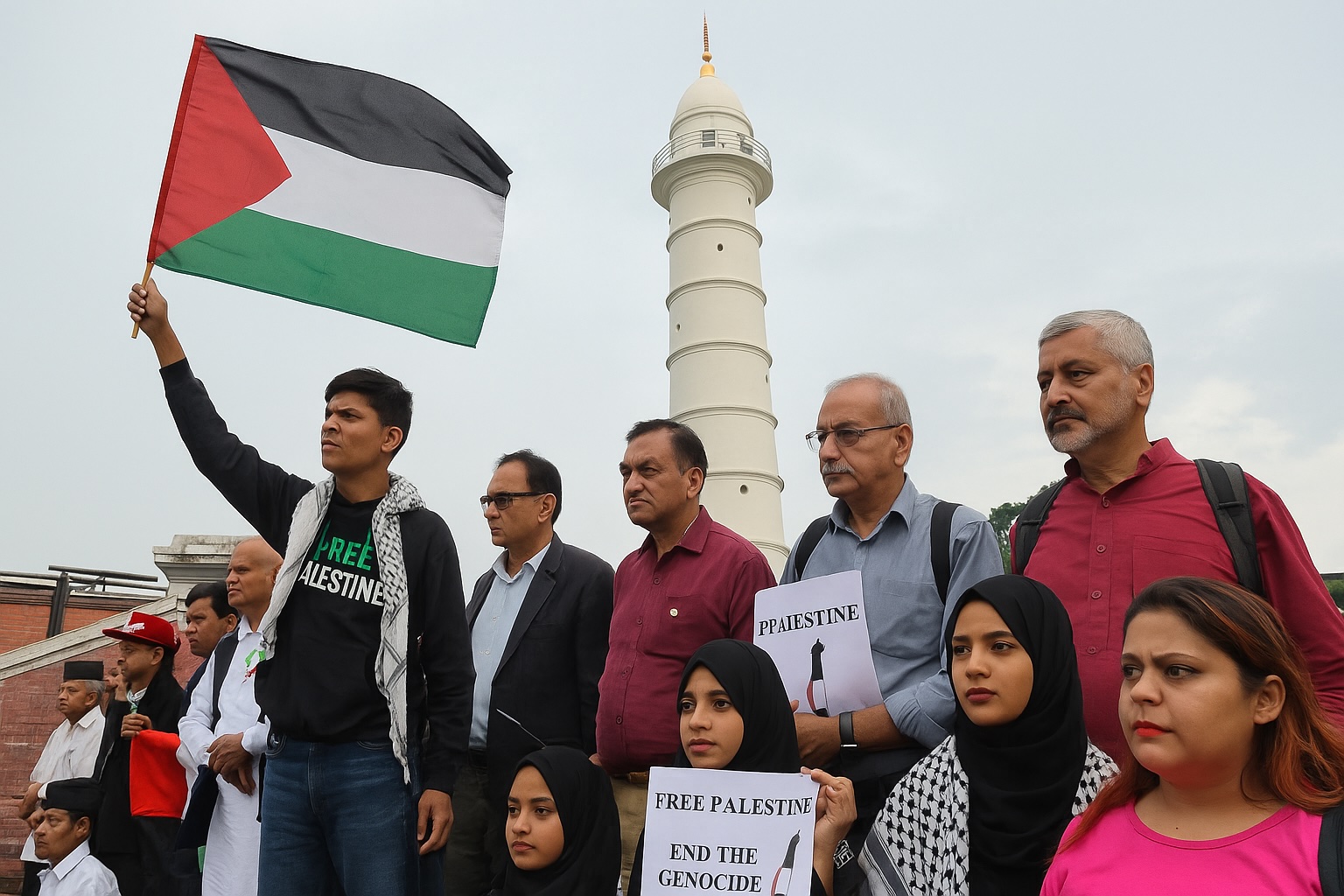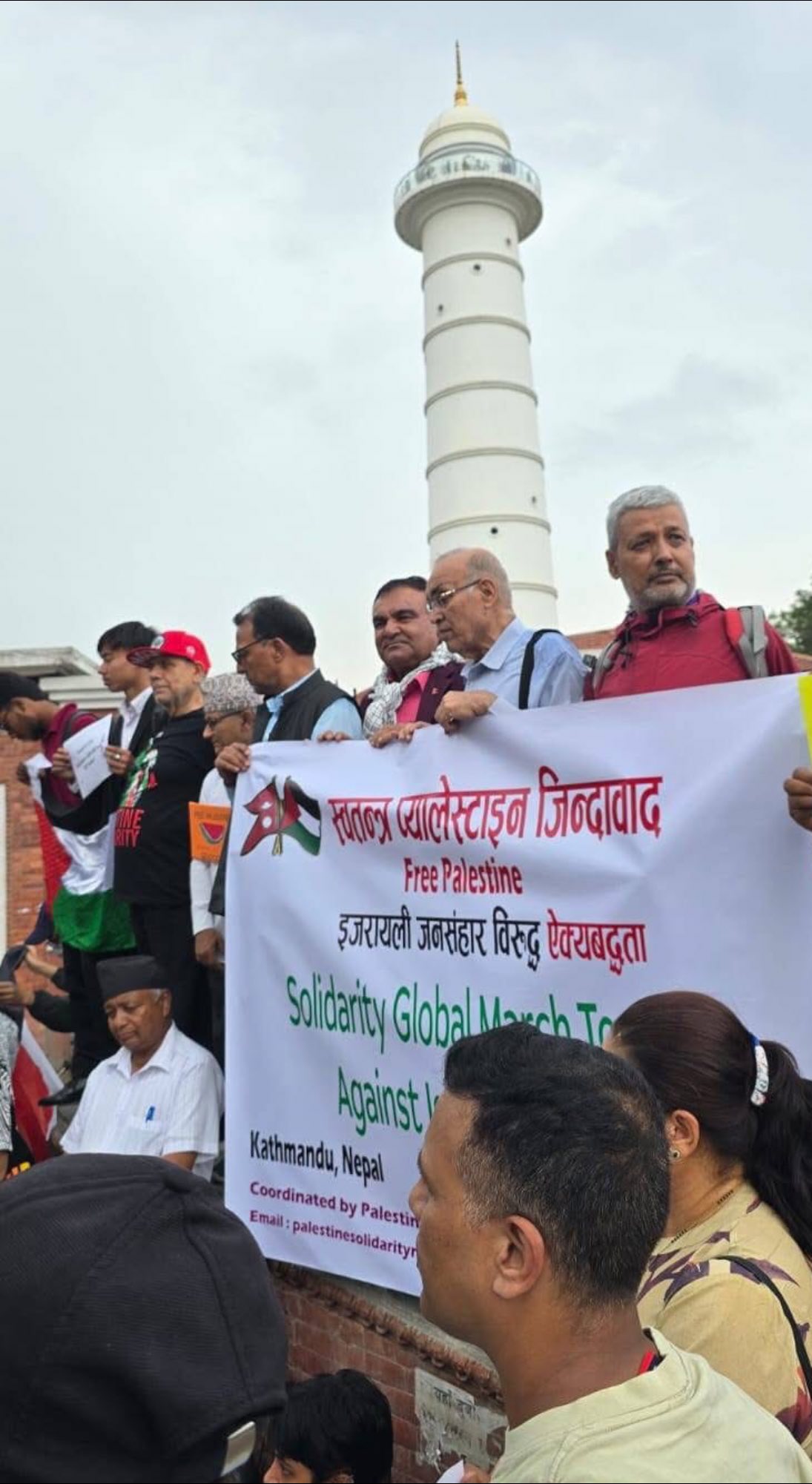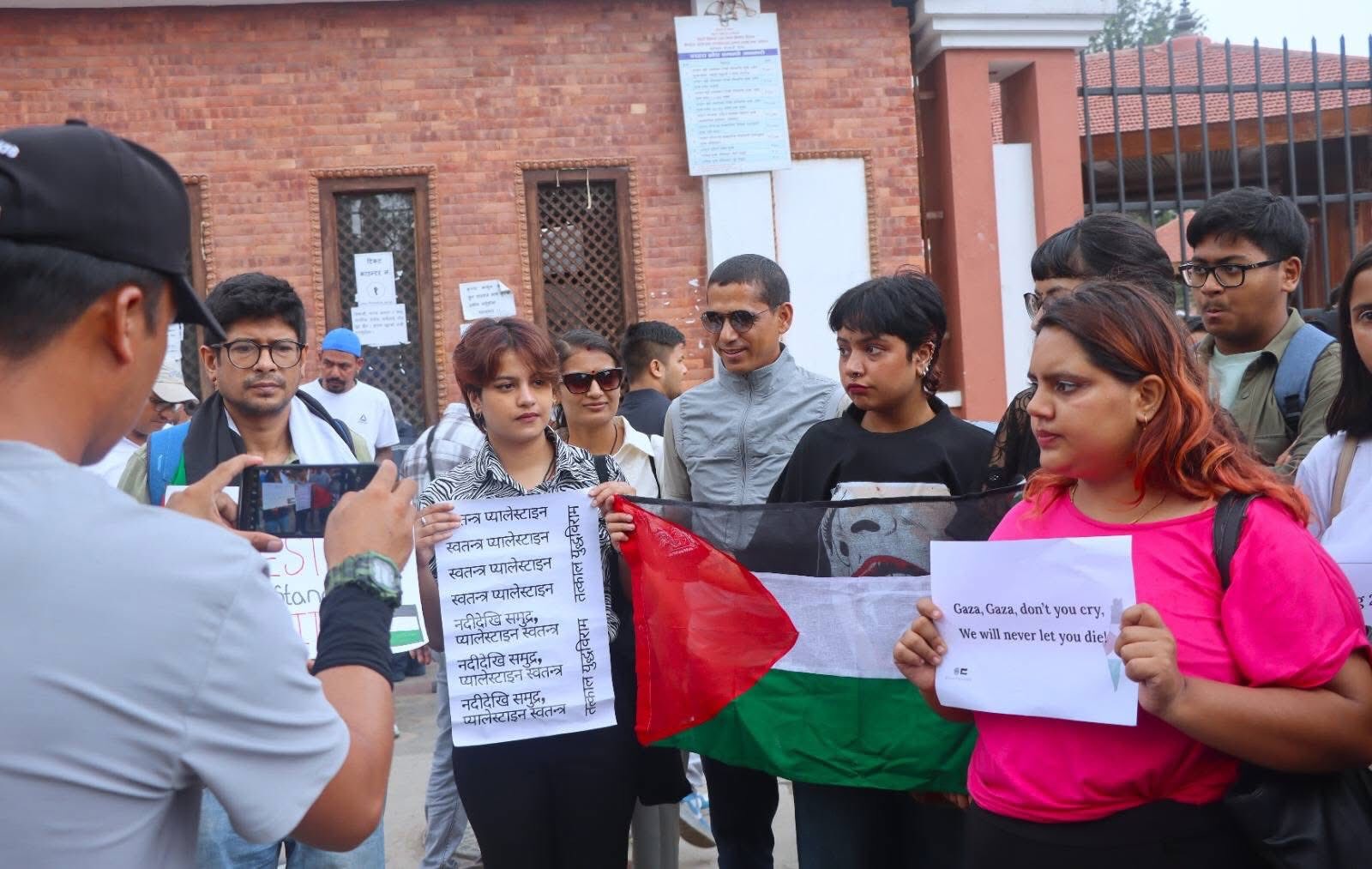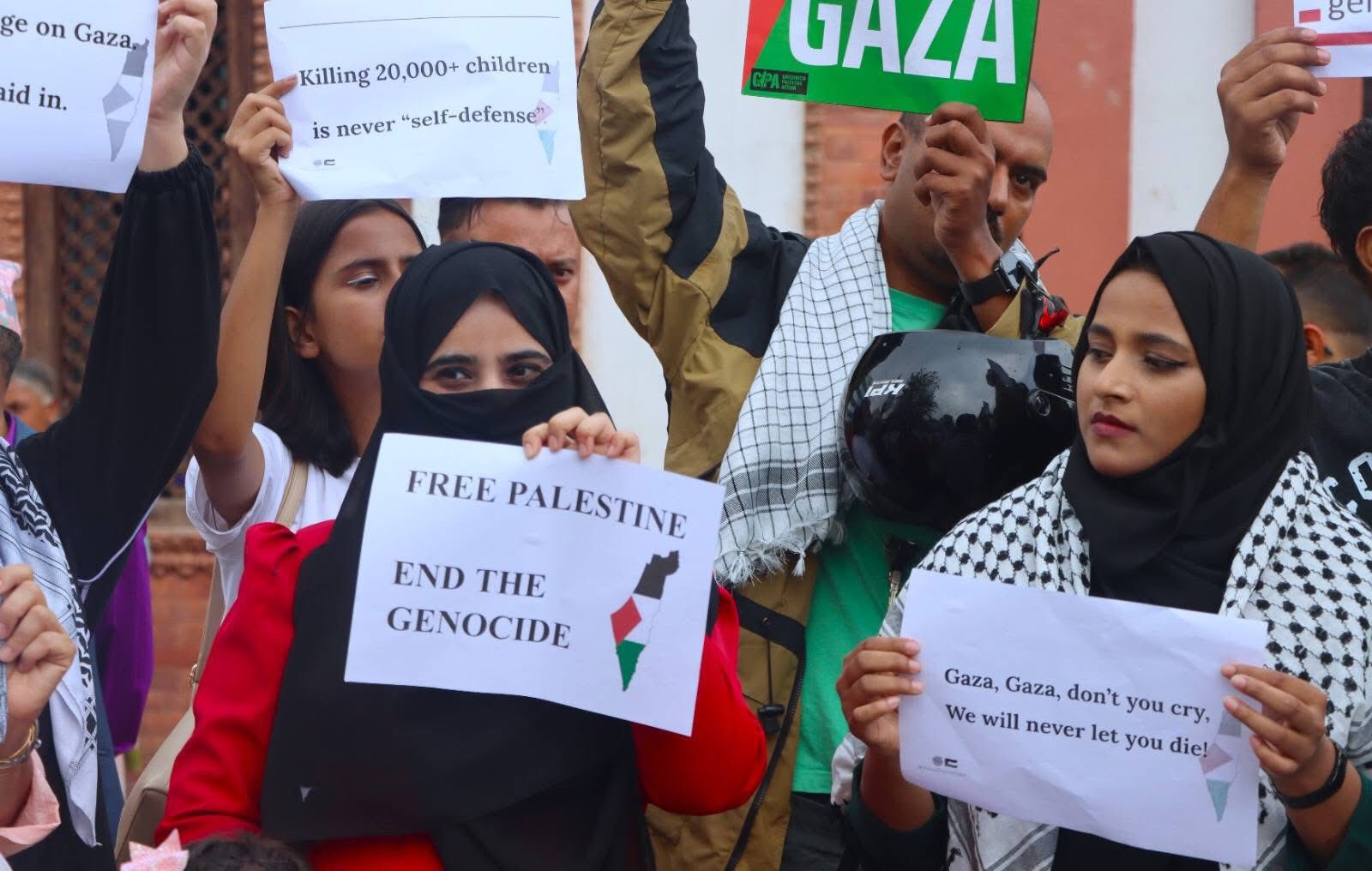Radicals on the March: Praising Kim Jong-un and China in Palestine’s Name, Attacking Israel

“Marching Toward Misalignment: Pro-Palestine Rally in Kathmandu Reveals Rising Radical Posturing”
Kathmandu, June 17 — A controversial rally held at Sundhara on June 16 under the banner of the “Solidarity Global March to Gaza Against Israeli Genocide” has stirred unease across Nepal's diplomatic and civic spheres. Though the turnout was modest and politically fringe, the tone and slogans of the protest reflected an increasingly radical alignment that many fear could tarnish Nepal’s balanced foreign policy tradition.
The rally, coordinated by the so-called Palestine Solidarity Nepal Committee, featured a small group of demonstrators waving Palestinian flags, chanting anti-Israel slogans, and holding placards that accused Israel of genocide and the U.S. of complicity. But more alarmingly, the protest veered into disturbing ideological territory—praising authoritarian states like North Korea, Iran, Pakistan, and Venezuela, while condemning long-standing development partners like Israel, the United States, India, and South Korea.
“Some protesters were even heard claiming that Nepal needs a leader like the dictator of North Korea,” a concerned onlooker told Nepal Aaja. “That’s not just politically immature—it’s dangerous.”
Agenda Recalled
As previously reported, the stated purpose of the protest was to show solidarity with Gaza amid the ongoing Iran–Israel war. Organizers framed it as a stand “against genocide and imperialism”—phrasing which has been criticized as one-sided and inflammatory, especially considering the complex realities on the ground, where both sides have suffered civilian casualties.
Posters and banners at the event bore slogans like “Free Palestine – End the Genocide” and “Gaza, don’t you cry, we will never let you die!” — echoing rhetoric from groups internationally aligned with Hamas or the Iranian bloc. While the imagery was emotional, critics argue that it whitewashed terrorism and ignored the role of Hamas in perpetuating the conflict.
Diplomatic Dissonance
Nepal has traditionally walked a careful line in foreign policy—maintaining diplomatic relations with both Israel and Palestine, and balancing its geopolitical ties with India, China, the U.S., and the Gulf nations.
“This kind of radical protest is not representative of Nepal’s policy or people,” said a former ambassador who requested anonymity. “But if such voices grow unchecked, it could damage Nepal’s standing with its core allies.”
Indeed, Israel has long contributed to Nepal’s agriculture, disaster relief, and education sectors. The U.S. remains a top donor to Nepal, while India supports major infrastructure, energy, and cultural initiatives. Undermining these relationships in favor of ideologically charged sympathy for authoritarian regimes is, according to analysts, a “misguided political gamble.”
Small in Size, Big in Warning
Despite its minor scale, the rally is being viewed as a signal of something larger—a creeping romanticization of extremism among a segment of left-wing youth and fringe parties.
Observers fear that this sentiment could snowball, not because of its current influence, but because of its symbolic posture: a rejection of democratic alliances and an embrace of anti-Western authoritarian ideologies.
Final Thoughts
While the protest achieved its symbolic target—drawing some media attention and echoing the global “March to Gaza” movement—it did so at the cost of coherence and credibility. What should have been a humanitarian call to protect innocent lives in Gaza turned into a disturbing alignment with despotic regimes and divisive rhetoric against Nepal’s genuine allies.
Nepal must remain vigilant. In a world already fractured by propaganda, the streets of Kathmandu should not become a stage for imported extremism masquerading as activism.




![From Kathmandu to the World: How Excel Students Are Winning Big [Admission Open]](https://www.nepalaaja.com/img/70194/medium/excel-college-info-eng-nep-2342.jpg)
